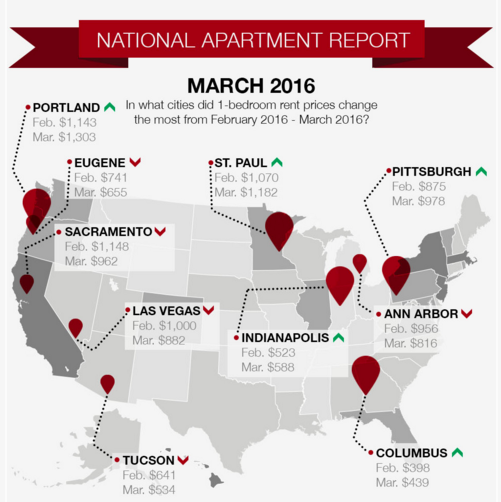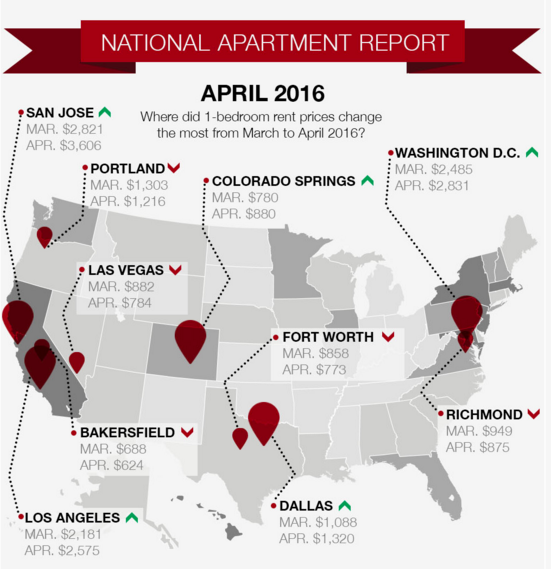Hey reporters! We know you love rankings, especially ones that show some measure of widely shared pain, like traffic congestion or rent increases.
And some people, armed with a database and an infographic are more than happy to feed your hunger for this type of analysis.
But please: Stop using Abodo’s rent numbers. They’re wrong. They’re meaningless.
We’ve documented why these numbers are wrong. Abodo computes an average based on the apartments contained in its listings database. But Abodo has only a partial, un-represenative, and constantly changing sample of the marketplace. They don’t cover all apartments, and their monthly estimates are biased by composition effects: the apartments included in their sample in one month aren’t necessarily comparable to the apartments listed in their sample in the next month, and so changes in average prices reflect not overall inflation, but the different kinds of apartments that are for rent each month. As a result, Abodo rental inflation estimates fluctuate wildly from month to month.
Here’s a classic case of why you should ignore them:
Abodo said that in March, 2016, Portland, Oregon had the highest level of rent increases in the country, up 14 percent from February.
Then, the next month, Abodo reported that rents in April 2016 in Portland were down seven percent over the previous month, and this represented the fifth biggest decline in the nation.
And Colorado Springs, according to Abodo, showed exactly the reverse trajectory: it was one of the ten biggest losers in March 2016 (down 10 percent compared to February), but then had the fifth biggest increase in April (up 13 percent).
There’s nothing real or meaningful about either of these data points, or about the precipitous (and utterly absurd) changes they seem to imply. If you take Abodo at face value—and clearly no one should—Portland’s rental price inflation problem essentially disappeared in the last four weeks. And Colorado Springs when from catastrophic free-fall to boom in the same brief time period.
Abodo’s listings driven rent estimates are essentially a random number generator when used to calculate month-over-month changes in rental price inflation. Shame on Abodo for producing them in the first place. And shame on any journalist who credulously repeats them.
Acoustical engineers talk about a “signal-to-noise” ratio. What we have here is almost all noise and no signal.
Housing affordability and rental price inflation are real issues, but they’re not ones that Abodo’s data sheds any light upon. There are lots of reliable sources of data on rent levels and on rent inflation. We’ve set about compiling a friendly user’s guide to these data. So reporters, if you care about helping people understand what’s going on in the local housing market, please use these, or similar, resources.



